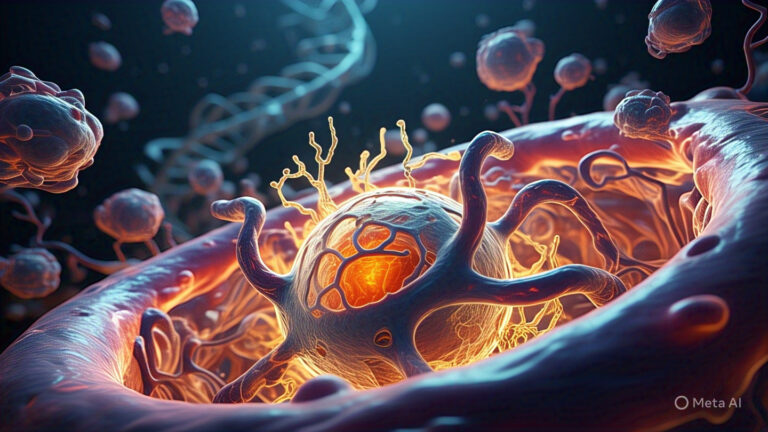Home Remedies for Bloating Gas: Natural Solutions for Relief in 2025
Estimated reading time: 10 minutes
Key Takeaways
- Natural Relief Options: Simple ingredients like ginger and peppermint can ease bloating discomfort effectively.
- Preventive Measures: Dietary adjustments and mindful eating habits reduce gas buildup over time.
- Lifestyle Impact: Stress management and physical activity play a crucial role in digestive health.
- Know When to Act: Persistent or severe symptoms may require medical attention—don’t ignore warning signs.
Table of Contents
- Introduction to Bloating Gas Relief
- Understanding Bloating and Gas
- Top 10 Home Remedies for Bloating and Gas Relief
- Dietary Adjustments to Prevent Bloating and Gas
- Lifestyle Tips for Long-Term Bloating Relief
- Debunking Myths and Misconceptions About Bloating and Gas
- Expert Insights on Bloating and Gas Relief
- FAQs on Bloating and Gas
Introduction to Bloating Gas Relief
Have you ever felt that uncomfortable tightness in your belly after a heavy meal? Bloating and gas can turn a pleasant day into a struggle, leaving you searching for quick relief. At WikiHomeRemedies, we understand how disruptive this can be, and we’re here to guide you with safe, natural solutions backed by trusted sources like the NIH and WebMD.
Our goal is to help you ease that discomfort using simple items you likely already have at home. Whether it’s a soothing tea or a gentle massage, relief is closer than you think. In this guide, we’ll walk through the causes of bloating, share effective home remedies, explore prevention tips, and offer lifestyle advice. Plus, we’ll include insights from experts to ensure you have all the tools for lasting comfort. Let’s start this journey to better digestive health together. For more on natural solutions to common digestive issues, check out our guide on Home Remedies for Bad Stomach.
Understanding Bloating and Gas
What Are Bloating and Gas?
Bloating feels like a swollen, tight abdomen, often making your stomach seem fuller than it is. Gas, on the other hand, is trapped air in your digestive system, leading to burping or a need to pass wind. Both can bring discomfort, sometimes paired with mild pain or a rumbling sensation.
Many people experience these issues daily, noticing symptoms like abdominal distension or frequent belching. It’s a common annoyance that can stem from various sources, often tied to what we eat or how we live. Recognizing these signs helps in finding the right path to relief, as outlined by resources like the Cleveland Clinic.
Common Causes of Bloating and Gas
Identifying why bloating and gas happen can point you toward solutions. Several factors play a role, often sneaking into our routines without much notice. Here are some frequent triggers, supported by insights from the Mayo Clinic:
- Dietary Choices: Foods like beans, lentils, and broccoli contain fibers that ferment in the gut, producing gas. Carbonated drinks such as soda introduce air directly into your system.
- Eating Habits: Swallowing air while eating too fast or using straws can trap gas in your belly. Overeating in one sitting puts extra strain on digestion.
- Lactose Issues: Dairy can be tough for some to digest, especially if there’s a sensitivity to lactose, leading to excess gas.
- Stress: Tension affects your gut, slowing digestion and potentially causing air buildup.
- Medical Factors: Conditions like irritable bowel syndrome (IBS) or small intestinal bacterial overgrowth might amplify symptoms, though these are less common for most.
Knowing these culprits sets the stage for targeted relief. Let’s now consider when professional help might be necessary. For related digestive concerns, explore our post on Home Remedies for Sour Stomach.
When to Seek Medical Help
While bloating and gas are often harmless, some situations call for a doctor’s input. Pay attention to your body for signs that go beyond typical discomfort. The Mayo Clinic highlights these warning signals:
- Severe, ongoing pain that doesn’t ease with home care.
- Unexplained weight loss alongside bloating.
- Blood in your stool or noticeable changes in bowel habits.
- Symptoms lasting more than a few weeks without improvement.
If any of these occur, reach out to a healthcare provider promptly. They can rule out underlying issues and guide you further. For most mild cases, though, natural remedies offer a comforting first step, which we’ll explore next.
Why Choose Natural Home Remedies?
Turning to natural remedies for bloating and gas makes sense for many. These approaches are often gentle on the body, easy to access, and cost little compared to over-the-counter options. At WikiHomeRemedies, we believe in harnessing nature’s potential to heal, drawing from time-tested practices and modern validation through sources like the NIH.
Think of using ingredients from your kitchen or simple techniques to calm your system. These methods not only soothe symptoms but also align with a sustainable way of caring for your health. With safety as a priority, let’s dive into practical solutions that bring relief without complexity.
Top 10 Home Remedies for Bloating and Gas Relief
Remedy 1: Ginger Tea
Ginger has long been a go-to for digestive woes due to its ability to calm inflammation in the gut. It helps speed up stomach emptying, reducing the chance of gas buildup, as supported by studies from the NIH. A warm cup of ginger tea can work wonders when bloating strikes.
Start by peeling and slicing a small piece of fresh ginger, about an inch long. Boil it in two cups of water for around 10 minutes, then strain. Sip slowly while it’s warm to let the soothing effect settle in. If you prefer a prepared option, consider a trusted ginger tea product—check labels for purity. Keep in mind not to overdo it; a cup or two daily is plenty to avoid irritation. This simple drink can become a staple for digestive ease.
Remedy 2: Peppermint Tea
Peppermint offers a refreshing way to relax the muscles of your digestive tract, helping gas pass more easily. Research highlighted by Healthline points to its effectiveness in reducing bloating discomfort. Its cooling nature can feel like a gentle reset for your stomach.
Brew a cup by steeping a teaspoon of dried peppermint leaves or a tea bag in hot water for 5 to 10 minutes. Drink it after meals to tackle gas buildup early. Be cautious if you have acid reflux, as peppermint might worsen it for some. A small serving goes a long way—enjoy the calming ritual as part of your day.
Remedy 3: Fennel Seeds
Fennel seeds carry a subtle licorice flavor and a powerful ability to ease gas, thanks to their carminative properties. They help relax the intestines, as noted by Medical News Today, making them a handy remedy after heavy meals. It’s a small seed with big impact.
Chew on a teaspoon of raw fennel seeds slowly after eating, or crush them slightly to release their oils. Alternatively, steep them in hot water for a mild tea. Limit intake to a couple of teaspoons daily to prevent any digestive upset. This age-old trick fits seamlessly into a busy routine for quick relief.
Remedy 4: Chamomile Tea
Chamomile isn’t just for winding down at night; it also soothes a troubled gut. It reduces intestinal spasms and eases stress that might worsen bloating, according to Verywell Health. A warm mug offers dual comfort for mind and body.
Steep a chamomile tea bag or a tablespoon of dried flowers in hot water for about 10 minutes. Drink it in the evening or after a meal to curb discomfort. It’s gentle enough for most, though check for allergies to related plants like ragweed. Let this floral infusion become a moment of calm in your day.
Remedy 5: Warm Compress
Heat therapy through a warm compress can relax abdominal muscles, helping trapped gas move along. It’s a straightforward method that feels comforting, as mentioned by Reader’s Digest. No brewing or sipping needed—just pure ease.
Fill a hot water bottle or heat a damp towel in the microwave until it’s comfortably warm, not hot. Place it on your stomach for 10 to 15 minutes while lying down. Always test the temperature to avoid burns. This can pair well with rest, turning discomfort into a chance to recharge.
Remedy 6: Abdominal Massage
A gentle massage can stimulate digestion and help release trapped air from your belly. The Cleveland Clinic notes that proper technique can make a real difference in easing bloating. It’s a hands-on way to care for yourself.
Start at the lower right side of your abdomen, moving in clockwise circles toward the left, following your colon’s path. Spend about 5 to 10 minutes applying light pressure. Do this after meals or when discomfort peaks, ensuring your hands are clean and your posture relaxed. Regular practice might even prevent future buildup with steady care.
Remedy 7: Lemon Water
Lemon water kickstarts hydration while giving your digestion a nudge. The citrus can encourage bile production for better food breakdown, as shared by Prevention. It’s a bright, simple drink to sip through the day.
Squeeze the juice of half a lemon into a glass of warm water first thing in the morning. Drink it before eating to prep your system, avoiding excess acidity by not overdoing the lemon. It’s best on an empty stomach for maximum benefit. Make this a refreshing habit to support smoother digestion.
Remedy 8: Activated Charcoal
Activated charcoal binds to gas in the gut, potentially reducing bloating by absorbing excess air. Everyday Health points out its use for temporary relief, though evidence varies. It’s an option worth exploring with caution.
Take a dose as directed on a trusted supplement package, often 500 to 1000 milligrams, with a full glass of water. Always consume it between meals to avoid interfering with nutrient absorption or medications. Speak with a healthcare provider first if you’re on other treatments. Used sparingly, this could be a helpful tool in your kit.
Remedy 9: Apple Cider Vinegar
Apple cider vinegar may aid digestion by balancing stomach acids, though WebMD suggests results depend on the person. A small amount diluted properly can offer a tangy nudge to a sluggish system. It’s potent, so care is key.
Mix one tablespoon of raw, unfiltered apple cider vinegar into a glass of water. Drink before a meal to help with food breakdown, but limit to once daily to protect your enamel and stomach lining. Stop if you feel any burning or unease. This sharp remedy demands respect but can be a useful ally.
Remedy 10: Probiotic-Rich Foods
Probiotics in fermented foods like yogurt or kefir support a balanced gut, cutting down on gas over time. Harvard Health underscores their role in fostering healthy bacteria for long-term digestive harmony. It’s a nourishing way to prevent issues.
Add a small serving of plain, unsweetened yogurt to your breakfast or snack on kimchi with meals. Look for labels mentioning live cultures to ensure benefits. Consistency matters—make it a daily habit rather than a one-off. Building gut strength with these foods is a gradual but rewarding step.
Dietary Adjustments to Prevent Bloating and Gas
Foods to Avoid for Less Bloating
Cutting back on certain foods can stop bloating before it starts. The Mayo Clinic identifies key culprits that often lead to gas buildup. Consider limiting these in your meals:
- Beans and Lentils: High in fiber, they ferment in the gut, creating air.
- Cruciferous Vegetables: Broccoli and cauliflower produce gas during digestion for many.
- Carbonated Drinks: Soda and sparkling water introduce bubbles directly into your system.
- Dairy Products: Milk or cheese can trouble those with lactose sensitivity.
- Artificial Sweeteners: Sorbitol and mannitol, found in gum, might worsen symptoms.
A little awareness when planning meals prevents that tight, full feeling. Small swaps can make a noticeable shift in comfort.
Foods to Include for Digestive Ease
On the flip side, some foods support digestion without overloading your gut. These options are kinder to your system and still tasty. Here are a few to lean on:
- Bananas: Rich in potassium, they help regulate fluid balance.
- Rice: A gentle carb that’s unlikely to ferment and cause gas.
- Cucumber: High water content aids hydration and digestion.
- Papaya: Contains enzymes that break down proteins smoothly.
- Oats: Soluble fiber soothes without the heavy gas production.
Building meals around these can keep bloating at bay. Pair them with mindful portions for even better results.
Eating Habits to Reduce Gas Buildup
How you eat matters just as much as what you eat. Simple tweaks in your routine can lessen air trapped in your belly. The Cleveland Clinic offers these practical tips:
- Break meals into smaller, frequent portions to avoid overloading your stomach.
- Chew slowly to reduce swallowed air and aid initial digestion.
- Skip straws, as they can pull extra air into your system while drinking.
- Sit upright during and after meals to help food settle properly.
These habits take little effort but pay off in comfort. Start with one change and notice the difference over days.
Importance of Hydration
Water keeps your digestive system moving, preventing sluggishness that can worsen bloating. Staying hydrated helps break down food and move waste through your intestines. Without enough fluid, gas can linger longer than needed.
Aim for around eight glasses daily, or roughly 2 liters, adjusting based on activity and climate. Sip throughout the day rather than gulping large amounts at once. Pair this with watery fruits like melon for an extra boost. Consistent hydration ties directly into smoother, less troubled digestion over time.
Lifestyle Tips for Long-Term Bloating Relief
Physical Activity to Ease Digestion
Movement can work wonders for a bloated belly by stimulating your digestive tract. A simple walk after eating helps gas pass through more naturally. Prevention magazine highlights how light activity prevents air from getting stuck.
Try a 15-minute stroll around your neighborhood, covering about a mile (1.6 kilometers), to kickstart relief. Yoga poses like child’s pose or a gentle twist also release tension in the gut. Even 10 minutes of stretching daily adds up. Make time for this—it’s a low-effort way to support your body’s rhythm without strain.
Stress Management for Better Gut Health
Stress tightens your body and slows digestion, often trapping gas as a result. Harvard Health points out the direct link between a calm mind and a happy gut. Taking moments to unwind can prevent bloating before it builds.
Set aside 5 minutes for deep breathing—inhale for a count of four, exhale for six. Meditation or even stepping away from a busy screen helps reset your system. Journaling thoughts at day’s end clears mental clutter, too. These small practices ease both your mind and stomach, creating a ripple of relief.
Sleep and Posture Tips
How you rest impacts digestion more than you might think. Lying down right after eating can trap gas, while certain positions aid relief. Consider these adjustments for better nights and days:
- Wait at least two hours after meals before bedtime to let food settle.
- Sleep on your left side to align with your stomach’s natural curve.
- Keep your head slightly elevated to avoid reflux tied to bloating.
- Sit up straight during the day to give your gut room to process.
Small shifts like these prevent discomfort from creeping in. They’re easy to weave into your nightly wind-down.
Building a Sustainable Routine
Lasting relief from bloating comes from blending these remedies and habits into your life. Start by picking one or two—like sipping ginger tea post-meal or walking daily—and build from there. WikiHomeRemedies stands by the idea that sustainable health grows from steady, natural steps.
Track what works for your body, maybe noting meals or stress levels in a simple log. Combine hydration, mindful eating, and a touch of movement each week. Over time, these choices become second nature, reducing bloating as a regular concern. Consistency shapes a path to enduring digestive peace. If you’re also struggling with related issues like acid indigestion, check out additional tips in Home Remedies for Acid Indigestion.
Debunking Myths and Misconceptions About Bloating and Gas
Common Myths About Bloating
Misinformation about bloating can steer you off course when seeking relief. Let’s clear up some misunderstandings with facts grounded in sources like WebMD and Healthline:
- Myth: All dairy causes bloating. Fact: Only those with lactose intolerance struggle—many can enjoy small portions fine.
- Myth: Soda always leads to gas. Fact: While carbonation contributes, quantity and frequency matter more than the drink itself.
- Myth: Bloating means weight gain. Fact: It’s often just temporary fluid or air, not added pounds.
- Myth: Skipping meals prevents bloating. Fact: Irregular eating can disrupt digestion, sometimes worsening symptoms.
Understanding the truth helps you focus on real solutions. Don’t let outdated ideas cloud your path to comfort.
Cultural Remedies and Their Validity
Around the world, people have turned to unique practices for bloating relief, from cumin water in South Asia to caraway seeds in Europe. These cultural habits often stem from generations of observation, carrying a kernel of wisdom. However, not all have solid backing in today’s research.
While some—like ginger or fennel—align with modern studies, others remain anecdotal. Approach these with curiosity but lean on remedies validated by science for safety. WikiHomeRemedies values global traditions yet prioritizes evidence as your guide, ensuring you explore nature’s offerings with confidence.
Expert Insights on Bloating and Gas Relief
Professional Perspectives from Gastroenterologists
Experts in digestive health often endorse natural remedies for mild bloating as a first step. Insights from trusted platforms like the Cleveland Clinic emphasize that simple options, such as peppermint or ginger, can ease symptoms without side effects for most. A noted gastroenterologist suggests starting with diet tweaks—cutting gas-forming foods—before reaching for medications.
Prevention ranks high in their advice, too. Chewing food thoroughly and managing stress come up often as overlooked keys to gut health. If symptoms persist, testing for conditions like IBS might be wise. Their guidance reinforces that pairing home care with awareness offers a balanced approach to relief.
Scientific Studies Supporting Remedies
Research lends weight to many natural solutions for bloating we’ve shared. The NIH highlights ginger’s role in speeding gastric emptying, with trials showing reduced discomfort in regular users. Peppermint’s muscle-relaxing effect is backed by studies on PubMed, often outperforming placebo in small groups.
Probiotics also shine in findings from Harvard Health, with consistent intake linked to less gas over months. Even activated charcoal shows promise in limited research for absorbing excess air, though more data is needed. These studies anchor our recommendations, proving that nature and science can align for your well-being.
FAQs on Bloating and Gas
- Can bloating be dangerous? Usually, no—it’s often just discomfort from diet or habits. But if paired with severe pain or weight loss, see a doctor, per Mayo Clinic advice.
- What is bloating exactly? It’s a feeling of fullness or tightness in the abdomen, often from gas or fluid buildup, as defined by Cleveland Clinic resources.
- Which foods most often cause gas? Beans, broccoli, onions, and soda top the list due to fermentation or carbonation, according to WebMD.
- How does ginger compare to peppermint for relief? Ginger speeds digestion, while peppermint relaxes muscles—both help, but ginger might act faster for some, per Healthline insights. For additional digestive relief strategies, see our article on Home Remedies for Loose Stools.










